CATEGORIES
Kategorier
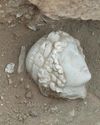
Digs & Discoveries - A Friend For Hercules - Archaeologists discovered a finely carved head depicting Apollo, god of the sun, music, and poetry.
While digging at the crossroads of the two main streets in the ancient city of Philippi in northern Greece, archaeologists discovered a finely carved head depicting Apollo, god of the sun, music, and poetry.
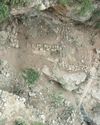
Digs & Discoveries - A Fortress Sanctuary - A sprawling 2,000-year-old fortress in the Zagros Mountains of Iraqi Kurdistan appears to have included a sanctuary dedicated to the ancient Persian water goddess Anahita.
A sprawling 2,000-year-old fortress in the Zagros Mountains of Iraqi Kurdistan appears to have included a sanctuary dedicated to the ancient Persian water goddess Anahita.
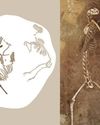
Like Cats And Dogs – Archeologist fund the skeleton of a male Eurasian lynx (Lynx lynx), a notoriously shy creature.
Оn the periphery of Zamárdi, an ancient lakeshore settlement in west-central Hungary, archaeologists uncovered a nearly five-foot-deep beehive-shaped pit with the skeletons of four adult dogs buried in successive shallow layers.
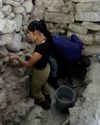
A Dynasty Born In Fire- How an upstart Maya king forged a new social order amid chaos
At the beginning of the Terminal Classic period (ca. A.D. 810-1000), many of the great kingdoms of the southern Maya lowlands-among them Tikal, Palenque, and Calakmul-were being abandoned or collapsing. For many years, scholars have assumed that most, if not all, the other kingdoms across the Maya world must have also been in steep decline.
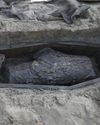
Medical Malfeasance - Archaeologists uncovered two coffins during excavations of a nineteenth-century cemetery in Quebec City that provide evidence of the illicit practice of diverting corpses for the study of human anatomy.
Archaeologists uncovered two coffins during excavations of a nineteenth-century cemetery in Quebec City that provide evidence of the illicit practice of diverting corpses for the study of human anatomy. Starting in 1847, medical students were required to have practical experience studying human anatomy, but legal options to procure cadavers were limited
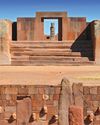
RISE AND FALL OF TIWANAKU
New dating techniques are unraveling the mystery of a sacred Andean city
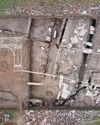
Making a Roman Emperor
A newly discovered monumental arch in Serbia reveals a family's rise to power in the late second century A.D.
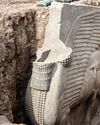
The Assyrian Renaissance
Archaeologists return to Nineveh in northern Iraq, one of the ancient world's grandest imperial capitals
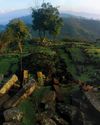
Java's Megalithic Mountain
Across the Indonesian archipelago, people raised immense stones to honor their ancestors
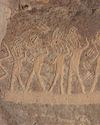
THE SONG IN THE STONE
Located in a desert gorge in southern Peru, Toro Muerto is one of the richest rock art sites in South America. It includes at least 2,600 boulders bearing petroglyphs, many featuring figures known as danzantes who appear to be dancing.
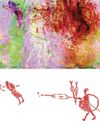
A Very Close Encounter
New research has shown that human figures painted in red on a rock art panel in central Montana depict individuals engaged in a life-or-death encounter during an especially fraught historical moment.
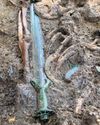
A Sword for the Ages
A zigzag pattern, now tinged with the green-blue patina of oxidized metal, adorns the octagonal hilt of a rare sword dating to the Middle Bronze Age in Germany (1600-1200 B.C.) that was recently excavated in the Bavarian town of Nördlingen.
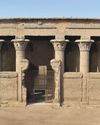
Ancient Egyptian Astrology
For centuries, layers of soot have coated the ceilings and columns in the entrance hall of Egypt's Temple of Esna. Now, an Egyptian-German team of researchers, led by Hisham El-Leithy of the Egyptian Ministry of Tourism and Antiquities and Christian Leitz of the University of Tübingen, is restoring the temple's vibrant painted reliefs to their original brilliance.
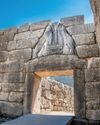
BRONZE AGE POWER PLAYERS
How Hittite kings forged diplomatic ties with a shadowy Greek city-state
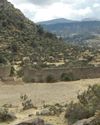
RITES OF REBELLION
Archaeologists unearth evidence of a 500-year-old resistance movement high in the Andes

Secrets of Egypt's Golden Boy
CT scans offer researchers a virtual look deep inside a mummy's coffin

When Lions Were King
Across the ancient world, people adopted the big cats as sacred symbols of power and protection

UKRAINE'S LOST CAPITAL
In 1708, Peter the Great destroyed Baturyn, a bastion of Cossack independence and culture

LAPAKAHI VILLAGE, HAWAII
Standing beside a cove on the northwest coast of the island of Hawaii, the fishing village of Lapakahi, which is surrounded by black lava stone walls, was once home to generations of fishers and farmers known throughout the archipelago for their mastery of la'au lapa'au, or the practice of traditional Hawaiian medicine. \"

A MORE COMFORTABLE RIDE
Although the date is much debated, most scholars believe people 5,000 years ago. For thousands of years after that, they did so without saddles. \"In comparison with horse riding, the development of saddles began relatively late, when riders began to care more about comfort and safety in addition to the horse's health,\" says University of Zurich archaeologist Patrick Wertmann.

PREVENTING THE RETURN OF THE DEAD
An archaeological team excavating a necropolis at the site of Sagalassos in southwest Turkey uncovered an unusual and very eerie tomb.

DRAMATIC ENTRANCE
Four miniature terracotta masks found in the Roman city of Jerash in Jordan shed light on its theater district in the second century A.D. Excavators from the University of Jordan unearthed the masks in a doorway of a structure.

PIZZA! PIZZA?
When Pompeian authorities recently unveiled a new wall painting, it launched an international debate.

ROYAL WHARF
During excavations in Oslo's Bjørvika neighborhood, archaeologists have uncovered a portion of the foundations of a medieval wharf.

SUNKEN CARGO
Israel Antiquities Authority (IAA) archaeologists have begun to investigate 44 tons of marble building materials that a swimmer spotted in shallow water 600 feet off the coast of the ancient Roman port of Caesarea after they were exposed by a recent storm.

RAM HEADS FOR RAMESSES
While exploring the surroundings of the temple of the pharaoh Ramesses II (reigned ca. 1279-1213 B.C.) in the ancient Egyptian city of Abydos, archaeologists from New York University's Institute for the Study of the Ancient World uncovered an enormous collection of mummified animal heads in an ancient storage area.

THE ELEPHANT AND THE BUDDHA
While working in the village of Gada Balabhadrapur on the banks of the Daya River in India's state of Odisha, archaeologists unearthed a three-foot-tall sculpture of an elephant dating to the third century B.C., a time when Buddhism flourished in the area.

NOSE TO TAIL
Los Angeles' first Chinatown was settled starting around 1880, south of the city's historic center, the Los Angeles Plaza. Over the next two decades, the densely populated neighborhood expanded to the northeast and became home to a range of Chinese-owned businesses. These included markets that sold fare such as plum sauce for seasoning roast meat and restaurants that served up delicacies such as bird's nest soup and century eggs.

An Elegant Enigma
The luxurious possessions of a seventeenth-century woman continue to intrigue researchers a decade after they were retrieved from a shipwreck

AFRICA'S MERCHANT KINGS
The early Christian kingdom of Aksum was at the heart of a great maritime trading network